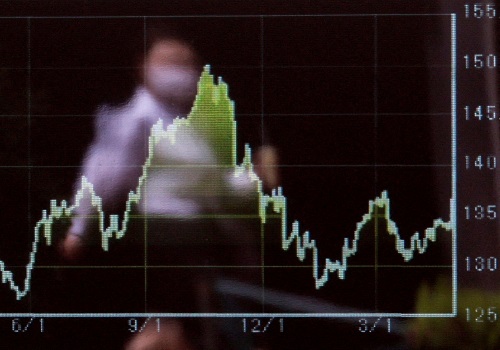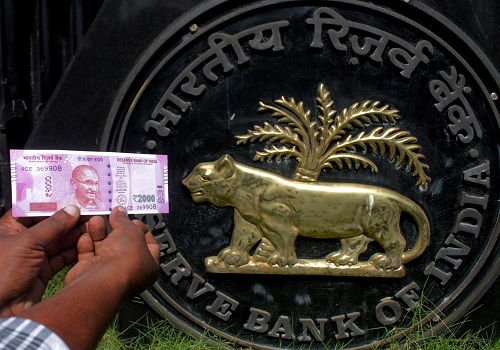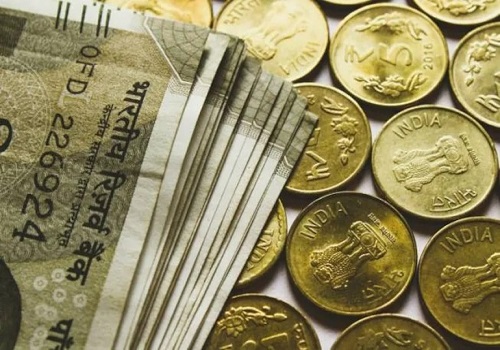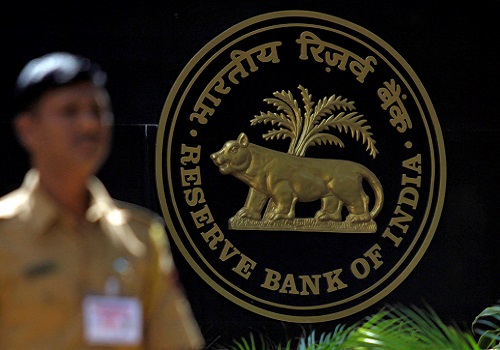`Debt distress, climate action to be main challenges for India as G20 President`
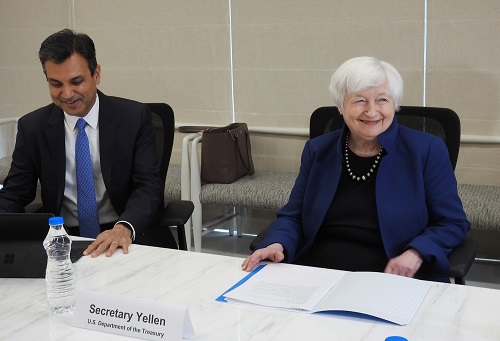
Follow us Now on Telegram ! Get daily 10 - 12 important updates on Business, Finance and Investment. Join our Telegram Channel
Visiting US Treasury Secretary Janet Yellen on Friday said that India is assuming the G20 presidency at an "uncertain time for the global economy" and that addressing debt distress, promoting climate action, evolving the multilateral development banks as well as embracing and shaping the changing economy would be the main challenges the country will face.
"In three weeks, India will assume the helm of the G20 at an uncertain time for the global economy. We look forward to supporting India's G20 presidency. A successful Indian presidency is indispensable to our global economic recovery and sustained progress on our deepest problems," Yellen said after visiting the Microsoft campus in Noida, soon after her arrival in the national capital.
On debt distress, Yellen said that the G20 must do better to provide debt relief where necessary.
"India's G20 year is a chance to accelerate global coordination on debt restructuring. Two years ago, the G20 established the Common Framework to bring all the major bilateral creditors. The Framework has not delivered on its promise, largely because of lack of cooperation from China. As a consequence, debtor countries in need are hesitant to request Common Framework treatment," Yellen said.
This, she said, needs to change. "All major bilateral creditors, including China, must cooperate constructively to deliver on their G20 commitment to provide meaningful debt relief. We must also improve the speed and predictability of the Common Framework itself. Beyond low-income countries, middle-income countries in distress, such as Sri Lanka, will also need a process for receiving timely and orderly debt relief. We welcome India's leadership in this area, whether through an expansion of the Common Framework or another multilateral framework."
Speaking on challenges related to climate crisis, Yellen said: "As the world's second-and third-largest emitters, we have a shared interest and responsibility to reduce our greenhouse gas emissions. The US is taking significant action. At home, we have enacted the Inflation Reduction Act. It's the most aggressive domestic climate action in our history.
"Our investment puts us on a strong path to meet our goal of reducing our emissions to at least half of 2005 levels by the end of this decade.It will also bring down the cost curves of clean energy technologies. This will have positive spillovers for the rest of the world."
Yellen informed that the US is working with countries to strengthen climate resilience for the most vulnerable communities.
"And we are facilitating a just transition for those most affected by the shift to a net-zero economy. President Biden has committed to increasing US international public climate financing to over $11 billion by 2024. In partnership with India, the G7 is marshalling a broad mix of public, private, and philanthropic financing to expedite India's energy transition in line with its ambitious climate goals. We will also advance global climate coordination with India in our role as co-chair of the G20 working group on sustainable finance. A global challenge like climate cannot be solved by any one country. It requires all of us to work together," she said.
On multilateral development bank evolution, the Treasury Secretary said: "our existing multilateral development finance architecture is currently unable to respond to these global challenges with the necessary speed and scale. Last month, ahead of the Annual Meetings, I called for an evolution of the development banks. I said that these institutions must devise new approaches to global challenges, while maintaining their existing focus on poverty reduction and the Sustainable Development Goals.
"I am pleased that the World Bank has committed to developing a work programme by the end of the year to strengthen its role and capacity to respond to evolving needs. As key World Bank shareholders, India and the US are critical to guiding the institution through this evolution. This effort serves as an important part of our overall strategy to mobilize against our global challenges."
Touching upon changing global economy, Yellen said: "The digital revolution has changed the face of communication and commerce in our countries over the past three decades. Today, the digital economy provides massive opportunity and continues to drive economic growth. This is particularly true in India, which has over 560 million Internet subscribers and 1.2 billion mobile phone subscribers. Rapid digital adoption has enabled India to achieve stunning success on its financial inclusion efforts."
However, she said that digital opportunities available to many Indians and Americans today are not readily available for much of the world.
"Over the next five years, the G7 aims to mobilize $600 billion through the Partnership for Global Infrastructure and Investment. It has identified digital infrastructure as a key priority alongside climate, health, and gender. The US is ready to work with India and other partners to close the global digital gap. As we do so, it is equally important to combat threats to privacy and cybersecurity and attend to emerging problems like illicit finance," she said.
The G20 has set out a roadmap for enhancing cross-border payments.
"We look forward to working with India to deliver on tangible outcomes. This includes reducing frictions to the flow of data. We also look forward to the G20 advancing financial inclusion efforts for the unbanked around the world," she concluded.










Tag News

Monthly Debt Market Update, September 2023: CareEdge Ratings








